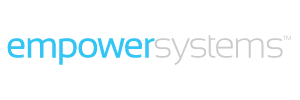
01 Jul Guiding the Future: The Crucial Role of Practicing Physicians, Nurses, and Clinicians in EHR Product Development
Source: Empower Systems
As the healthcare industry continues to evolve, the importance of electronic health records (EHRs) in streamlining operations, improving patient care, and enhancing data management cannot be overstated. However, the success of EHR systems hinges not just on their technical capabilities but on their practical usability and relevance to daily clinical work. This is where the input of practicing physicians, nurses, and clinicians becomes indispensable. Here’s why their guidance is critical in shaping the next era of EHR product development.
1. Ensuring User-Centered Design
Practicing healthcare professionals are the primary users of EHR systems. Their day-to-day experiences provide invaluable insights into what works and what doesn’t. By involving them in the development process, we can ensure that EHR systems are designed with the end-user in mind, leading to:
- Intuitive Interfaces: Clinicians can guide the design of user interfaces that are intuitive and reduce the learning curve, making it easier for all staff to use the system effectively.
- Efficient Workflows: Insights from daily practice can help streamline workflows within the EHR, ensuring that the system supports, rather than hinders, clinical tasks.
- Reduction of Administrative Burden: Practitioners can identify areas where automation and simplification can significantly reduce the time spent on administrative tasks, allowing them to focus more on patient care.
2. Enhancing Clinical Relevance
EHR systems need to support clinical decision-making and patient care effectively. Practicing clinicians can help ensure that these systems are clinically relevant by:
- Accurate Data Entry and Retrieval: Ensuring that the process of entering and retrieving patient data is straightforward and accurate, which is critical for providing high-quality care.
- Clinical Decision Support: Identifying where decision support tools within the EHR can be most beneficial, helping to reduce errors and improve patient outcomes.
- Customizable Templates: Suggesting customizable templates for different specialties, making the system adaptable to various clinical needs and practices.
3. Facilitating Interdisciplinary Collaboration
Healthcare is inherently interdisciplinary, involving collaboration between various professionals. Practicing clinicians can provide insights into how EHR systems can better support this collaboration by:
- Improving Communication: Suggesting features that enhance communication between different departments and specialties, ensuring that everyone involved in a patient’s care is on the same page.
- Integrated Care Plans: Developing integrated care plans within the EHR that can be accessed and updated by all members of the care team, promoting cohesive and coordinated care.
- Data Sharing and Interoperability: Advocating for seamless data sharing capabilities between different healthcare providers and institutions, which is crucial for comprehensive patient care.
4. Addressing Real-World Challenges
EHR systems need to address the real-world challenges faced by healthcare providers. Practicing clinicians bring firsthand experience of these challenges, such as:
- Time Constraints: Highlighting the need for systems that can be used efficiently under time constraints, ensuring that patient care is not compromised.
- Error Prevention: Identifying common sources of errors and suggesting ways that the EHR can help prevent them, improving patient safety.
- Compliance and Documentation: Ensuring that the system supports compliance with regulatory requirements without adding unnecessary complexity to the documentation process.
5. Fostering Innovation
Innovation in EHR development is driven by understanding the evolving needs of healthcare providers and patients. Practicing clinicians can drive this innovation by:
- Identifying Emerging Needs: Bringing attention to emerging trends and needs in healthcare that the EHR system can address, ensuring it remains relevant and useful.
- Feedback on New Features: Providing feedback on new features and updates, helping to refine and improve them before they are widely implemented.
- Championing Best Practices: Sharing best practices and innovative uses of EHRs from their own experiences, contributing to the continuous improvement of the system.
Conclusion
The next era of EHR product development must be guided by the insights and expertise of practicing physicians, nurses, and clinicians. Their firsthand experience ensures that these systems are user-centered, clinically relevant, and capable of addressing real-world challenges. By involving healthcare professionals in the development process, we can create EHR systems that not only meet the technical requirements but also enhance the quality of care, support interdisciplinary collaboration, and foster continuous innovation. As we move forward, the collaboration between technology developers and healthcare providers will be crucial in shaping EHR systems that truly serve the needs of the healthcare industry and its patients.

